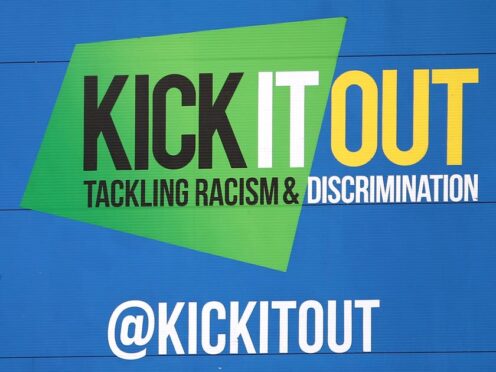Four out of five women coaches have experienced sexism and misogyny in their working environment, a new Kick It Out survey has found.
Eighty per cent of the 115 coaches surveyed by the charity, ranging from those working in the professional game down to grassroots, said they had encountered discrimination, with 70 per cent of respondents saying they experienced sexism while on a coaching course.
Of that 70 per cent, 71 per cent did not feel comfortable reporting what they had experienced to the course leader.
Although 60 per cent of all respondents thought coaching was an inclusive space, 54 per cent of those who said they had experienced sexism or misogyny admitted they had thought about quitting coaching as a result of their experiences.
Over half (57 per cent) of all respondents felt they had been spoken to differently based solely on their gender, 55 per cent recalled having their opinions or suggestions overlooked and 48 per cent said they were questioned over their knowledge of the rules.
‼️ 80% of women have experienced sexism while coaching, Kick It Out research suggests.
We surveyed women football coaches to investigate the levels of sexism and misogyny they face.
👉 Swipe for the findings and click the link to read more.
— Kick It Out (@kickitout) March 7, 2024
Kick It Out’s chief operating officer Hollie Varney said: “At a time of huge growth for the women’s game, it’s alarming that over half of the coaches surveyed said they had thought about quitting because of the sexism they had experienced.
“Many of the women we spoke to shared their passion and love for coaching but also talked about the exhaustion that came from being regularly undermined, questioned, and overlooked in the coaching environment.”
Of the 80 per cent who had experienced sexism or misogyny, 56 per cent said this came from coaching staff, either at their own club or from coaches of an opposing club, while 40 per cent experienced sexism from the parents of children they coached.
Varney, who herself coaches an under-14 girls’ team in the Junior Premier League and is working towards a UEFA B qualification, told the PA news agency: “It’s those little micro-aggressions – ‘are you one of the parents?’ or ‘are you here to run the line?’.
“People might not think, ‘Oh, that’s sexist’, but when it’s just aimed at a woman and you wouldn’t do it to someone of the same sex, it makes you feel uncomfortable.
“Then there’s also some of the actual outright aggressive behaviour that you see and I’ve certainly experienced this – (people) swearing directly at you, I’ve heard examples of dads shouting at female coaches telling them they don’t know what they’re doing, to be quiet. Just dismissive of their experience because they’re women.
“I’m not surprised by the statistics and some of the feedback because it shows what a journey we have to go on in terms of that culture change, within football and within this coaching environment.”
Reports to Kick It Out of sexism and misogyny in the wider game were up 400 per cent in the 2022-23 season compared to the prior campaign.
Kick It Out has employed grassroots coach educators in an effort to give coaches the skills to tackle unconscious bias, while clubs and other organisations can access resources on how to tackle sexism and misogyny on Kick It Out’s ‘The Academy’ platform.
